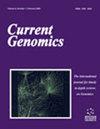欧洲生物库的监管格局:从认证到知识产权
IF 1.4
4区 生物学
Q4 BIOCHEMISTRY & MOLECULAR BIOLOGY
引用次数: 0
摘要
:生物库是储存和管理人类生物材料(如生物液体、组织、细胞或核苷酸)的必要资源。它们在开发新的治疗方法、推进基础研究和转化研究方面发挥着重要作用,尤其是在生物标志物的发现和验证领域。生物库是保护隐私和科学发现的必要条件,但不同国家和地区对生物库的监管存在很大差异。本文概述了欧盟(EU)现代生物库应达到的标准,包括一般、结构、资源、流程和质量要求。文章特别关注了《一般数据保护条例》(GDPR)和国际标准 ISO 20387:2018 规定的生物库一般要求中透明度和捐献者同意的重要性。其中专门有一节涉及捐赠者信息材料的准备,强调同意参与研究和个人数据处理。此外,还讨论了捐赠者隐私权与促进科学研究之间的微妙平衡,重点关注生物材料衍生发明和数据的专利申请和经济用途。考虑到这些因素,有必要完善法律框架,促进跨学科合作,以合乎伦理和负责任的方式扩大生物库。本文章由计算机程序翻译,如有差异,请以英文原文为准。
The Regulatory Landscape of Biobanks In Europe: From Accreditation to Intellectual Property
: Biobanks are necessary resources for the storage and management of human biological materials, such as biofluids, tissues, cells, or nucleotides. They play a significant role in the development of new treatments and the advancement of basic and translational research, especially in the field of biomarkers discovery and validation. The regulatory landscape for biobanks, which is necessary to safeguard both privacy and scientific discoveries, exhibits significant heterogeneity across different countries and regions. This article outlines the standards that modern biobanks should fulfill in the European Union (EU), including general, structural, resource, process, and quality requirements. Special attention is given to the importance of transparency and donor consent following the General Data Protection Regulation (GDPR) and the ISO 20387:2018, the international standard specifies general requirements for biobanks. A dedicated section covers the preparation of donor information materials, emphasizing consent for research involvement and personal data processing. The delicate balance between donors' privacy rights and scientific research promotion is also discussed, with a focus on the patenting and economic use of biological material- derived inventions and data. Considering these factors, it would be warranted to refine legal frameworks and foster interdisciplinary collaboration to ethically and responsibly expand biobanking.
求助全文
通过发布文献求助,成功后即可免费获取论文全文。
去求助
来源期刊

Current Genomics
生物-生化与分子生物学
CiteScore
5.20
自引率
0.00%
发文量
29
审稿时长
>0 weeks
期刊介绍:
Current Genomics is a peer-reviewed journal that provides essential reading about the latest and most important developments in genome science and related fields of research. Systems biology, systems modeling, machine learning, network inference, bioinformatics, computational biology, epigenetics, single cell genomics, extracellular vesicles, quantitative biology, and synthetic biology for the study of evolution, development, maintenance, aging and that of human health, human diseases, clinical genomics and precision medicine are topics of particular interest. The journal covers plant genomics. The journal will not consider articles dealing with breeding and livestock.
Current Genomics publishes three types of articles including:
i) Research papers from internationally-recognized experts reporting on new and original data generated at the genome scale level. Position papers dealing with new or challenging methodological approaches, whether experimental or mathematical, are greatly welcome in this section.
ii) Authoritative and comprehensive full-length or mini reviews from widely recognized experts, covering the latest developments in genome science and related fields of research such as systems biology, statistics and machine learning, quantitative biology, and precision medicine. Proposals for mini-hot topics (2-3 review papers) and full hot topics (6-8 review papers) guest edited by internationally-recognized experts are welcome in this section. Hot topic proposals should not contain original data and they should contain articles originating from at least 2 different countries.
iii) Opinion papers from internationally recognized experts addressing contemporary questions and issues in the field of genome science and systems biology and basic and clinical research practices.
 求助内容:
求助内容: 应助结果提醒方式:
应助结果提醒方式:


